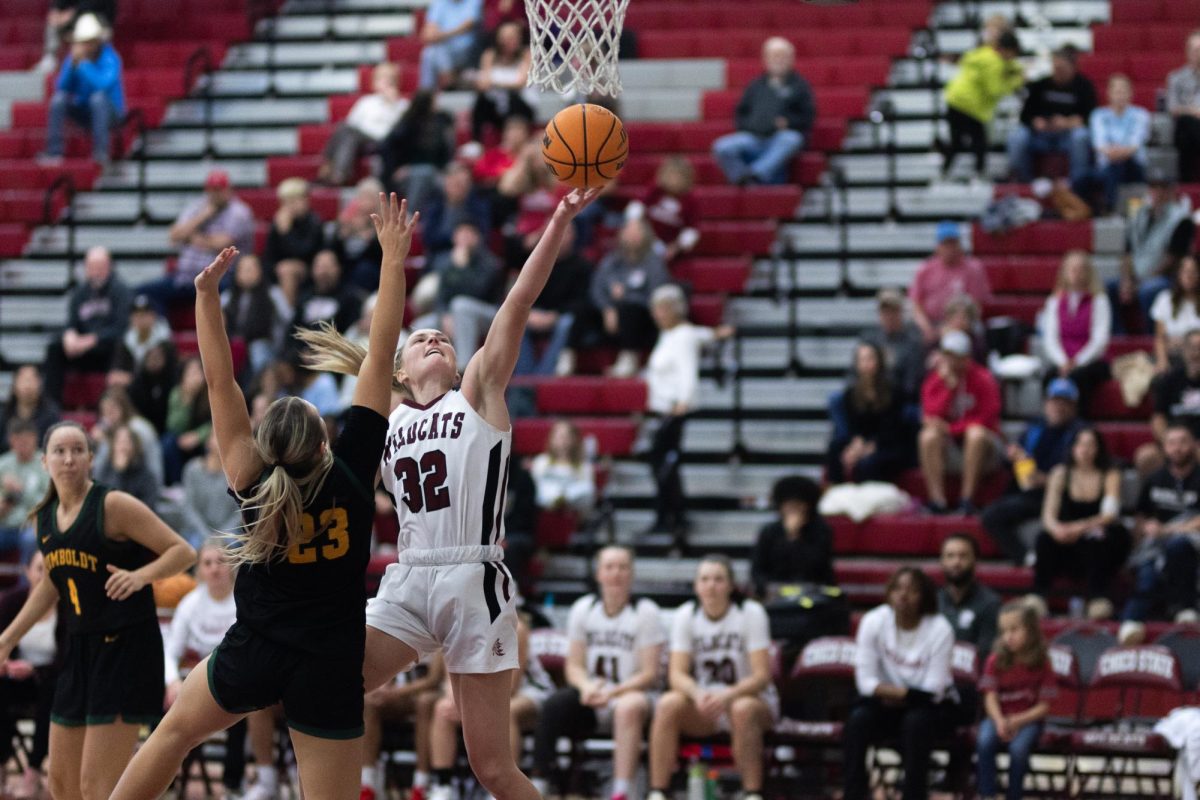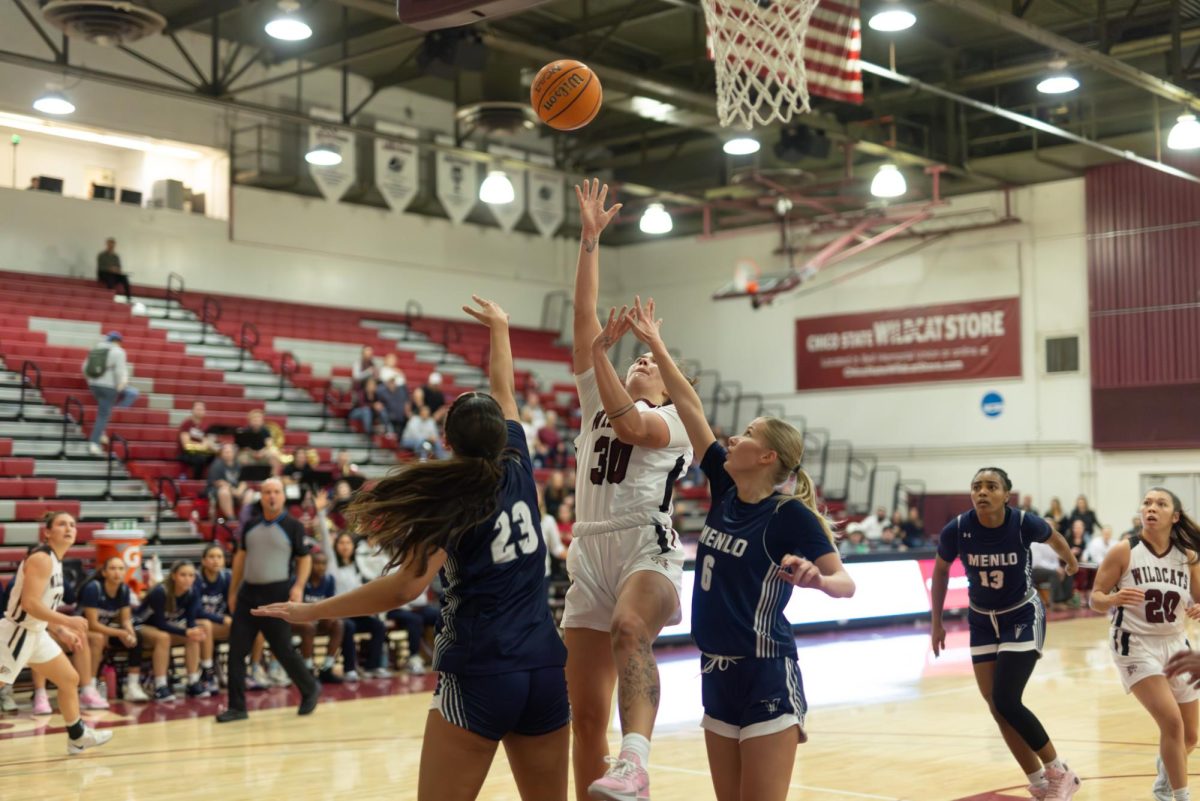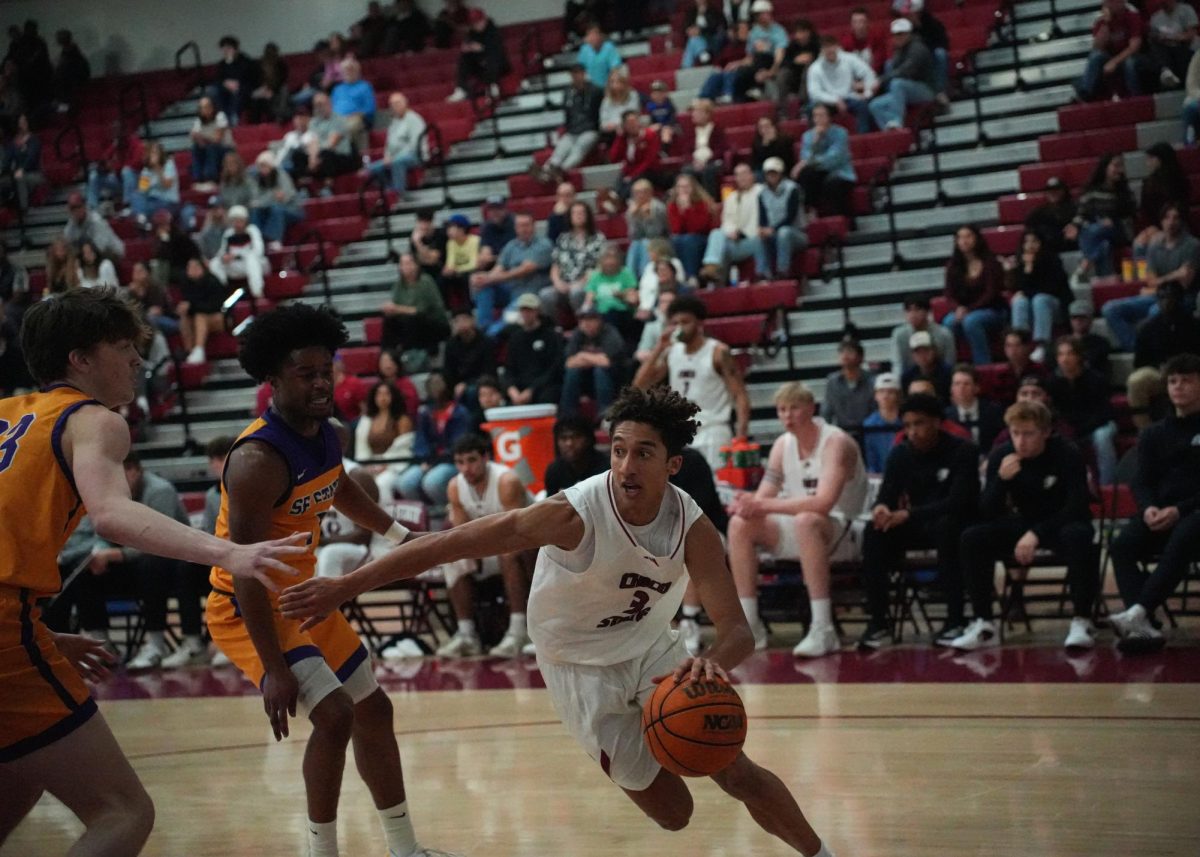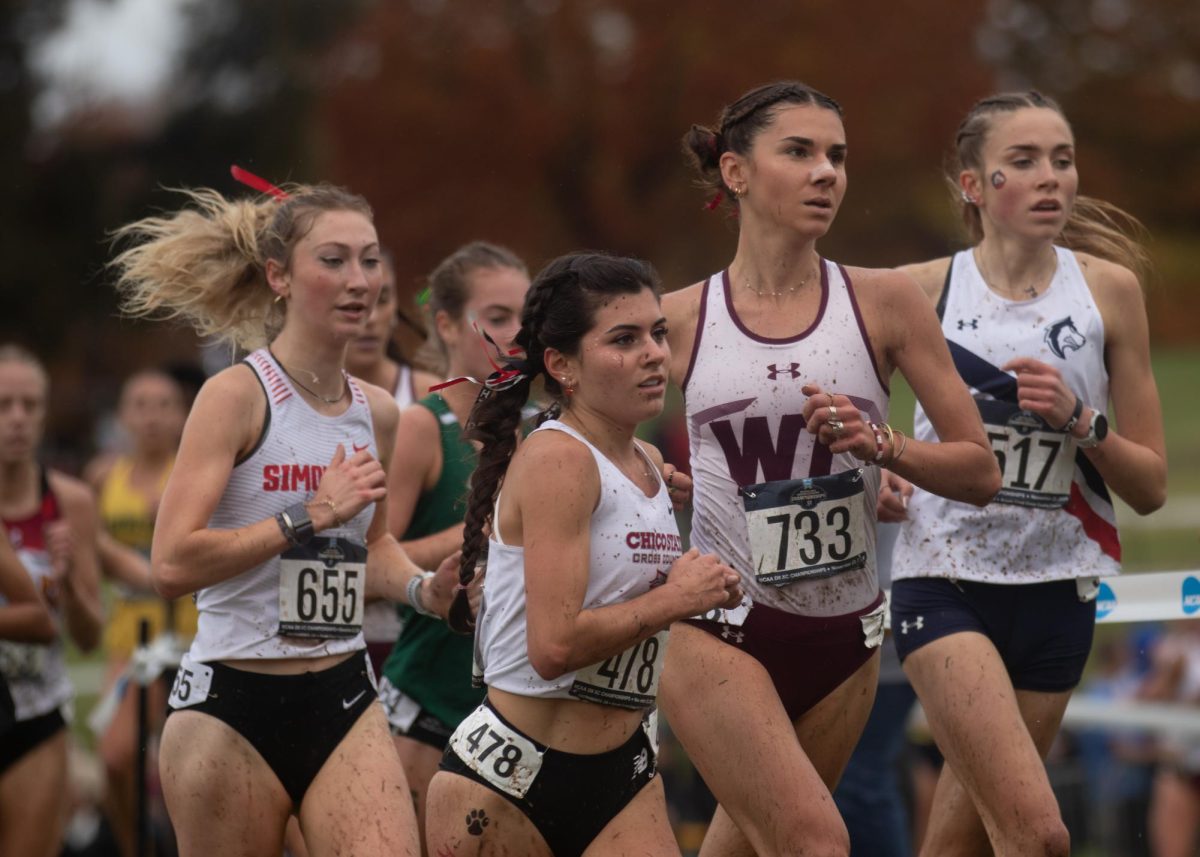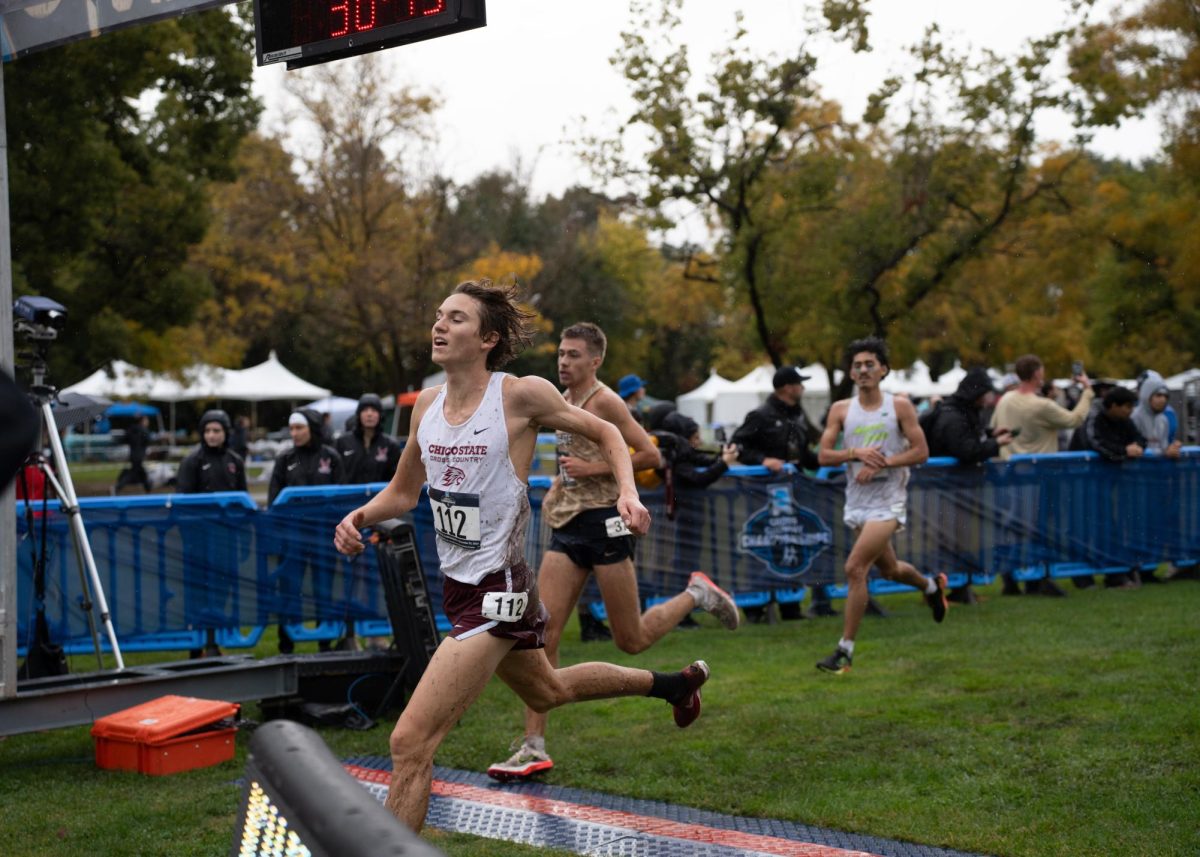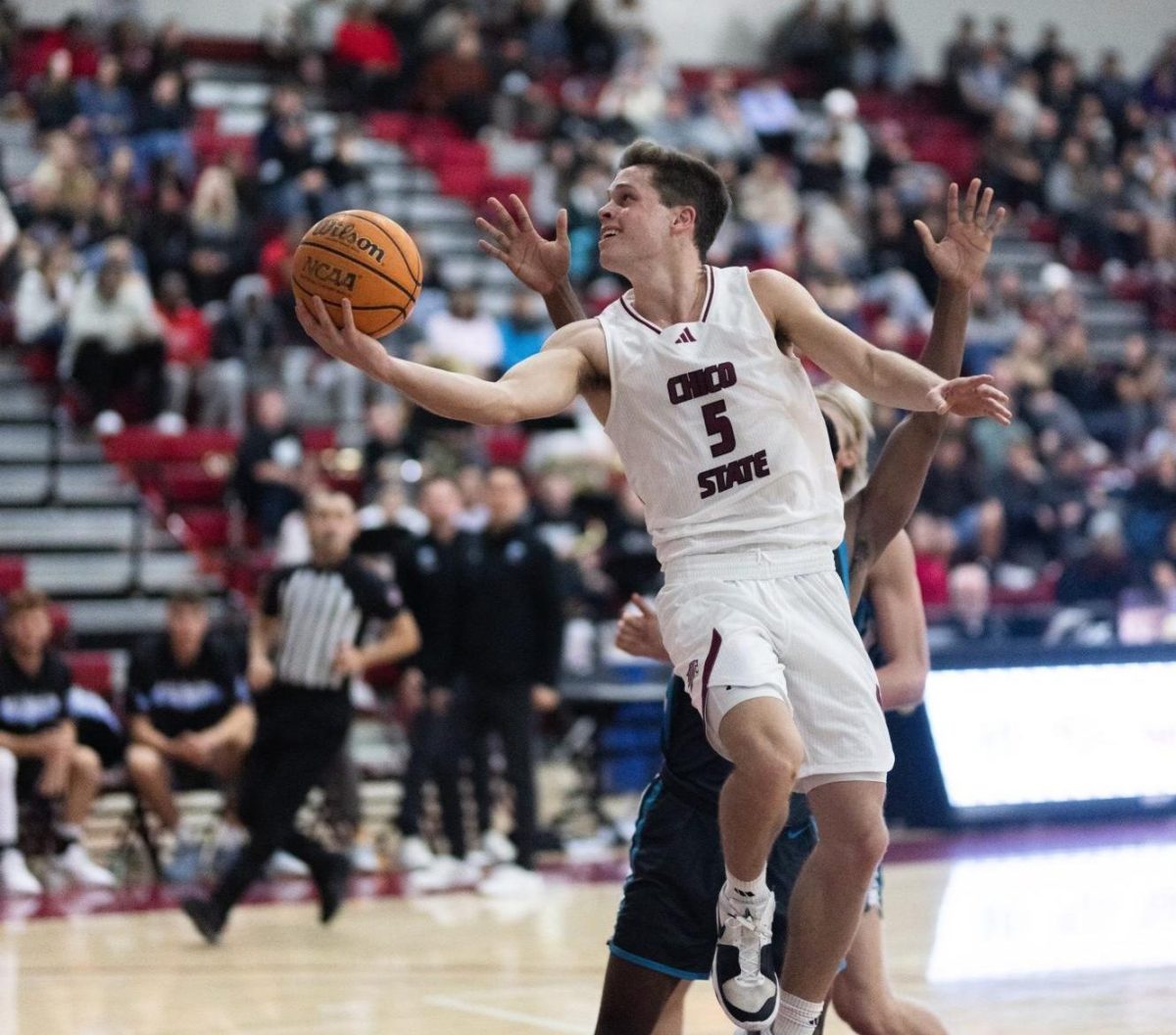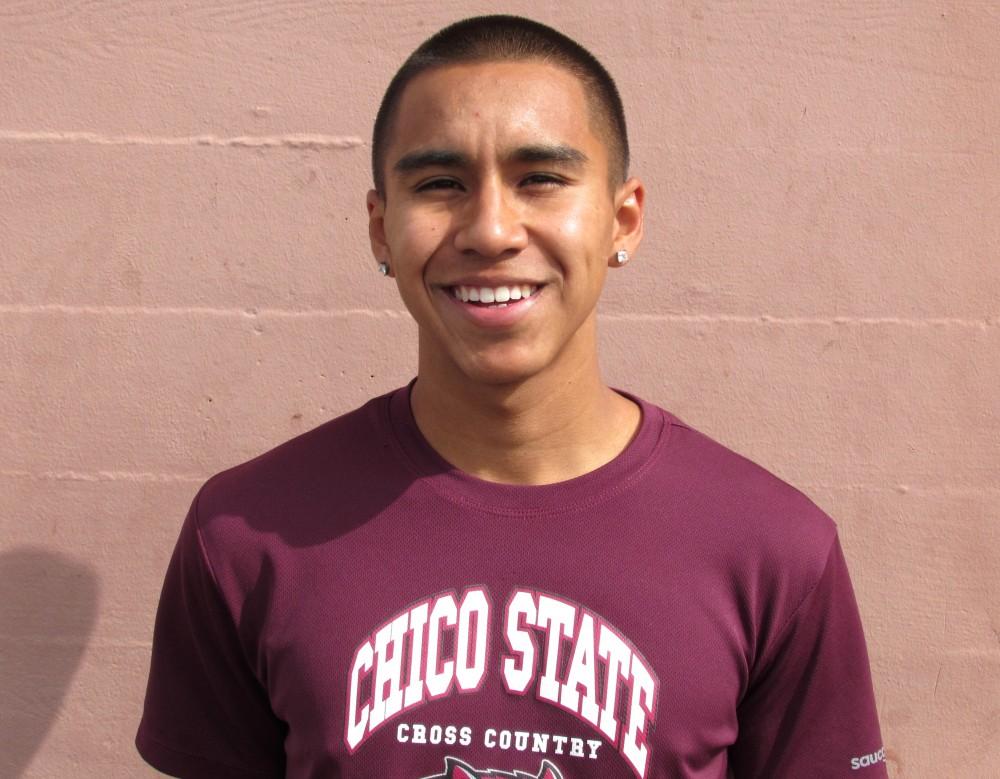
The will to win means nothing without the will to prepare, said Juma Ikangaa, a three-time second place finisher at the Boston marathon.
Imagine how that reflects on Chico State’s men and women’s cross-country teams. Both teams run each race with a unique mental strategy.
Gary Towne, Chico State’s head cross-country coach, said the approach to races is based on the competition the teams face.
“For instance, if you’re in a really large field in a cross-country race, then you want to get out enough initially so that you are not running into a traffic jam in the later stages of the race,” Towne said.
The traffic jam effect occurs when runners come up to turns on the course. As they approach the turns, they slow down, and in turn, slow the rest of the pack down.
At the Stanford Invitational in September, the women’s team didn’t start fast in the 300-runner field. It cost them because they couldn’t claw their way back to the front of the field.
Towne said runners can’t go too hard in the beginning because although it may mean a nice position, it can compromise breathing and the ability to run their best. He described it as a tricky scenario and something the teams have been working on this year.
Before every race, the team previews the course, Towne said. This helps with everything from the turns of the course to the terrain.
“On a course preview, I emphasize to them that they want to know the course well, because just knowing where you are at in accordance to the overall course is really helpful,” Towne said.
Sophomore runner Aaron Mora said that it really depends on the race, but national races might start a little slower and finish faster than regular races. Knowing the course is a great advantage in races.
“Just to know the course and imagine it the day before and know where you want to make moves,” Mora said. “Knowing how many loops you’re going to do, so then you’re not getting lost, because that is the worst thing to happen.”
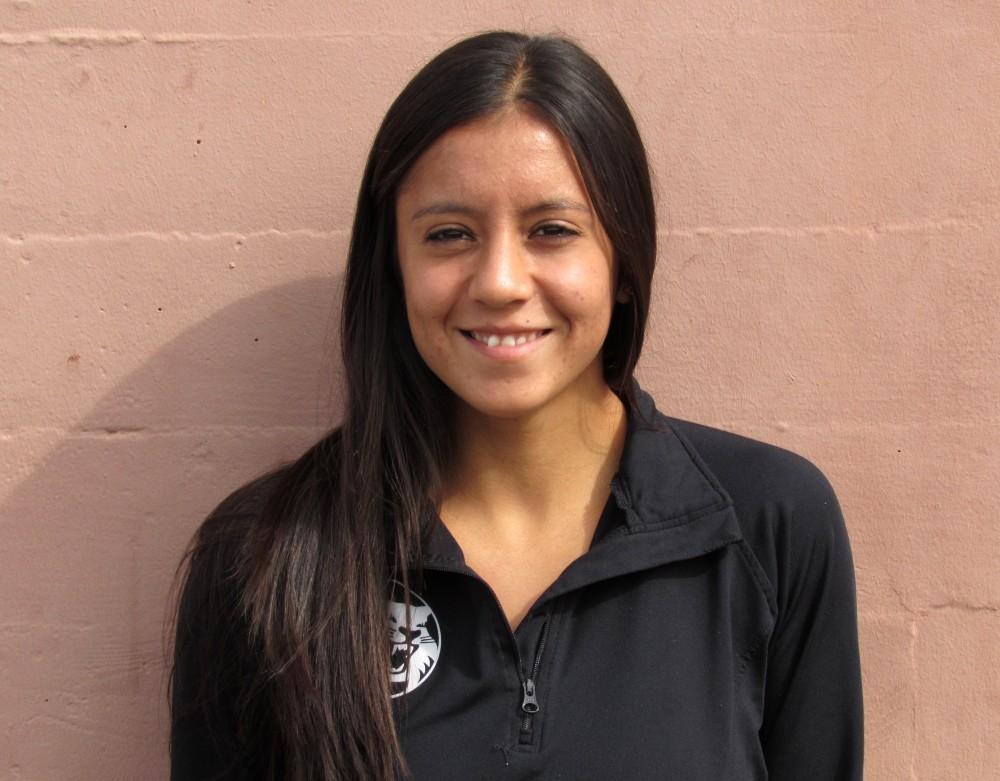
psychology double major, said the approach to all races is different, but to get out fast is always ideal. Photo credit: Emerson Keenan
Junior runner Quetta Peinado said awareness is a priority. Finding out who is in the field and not getting stuck at the back of the pack is tough, but the runner figures it out at about the 1-mile mark.
“Every course, every competition, is different and Gary does a great job of letting us know where we should be,” Peinado said. “The goal is to get out fast, but you don’t want to get stuck at the back because making up that distance is tough.”
Something the runners are eager to compete in is the NCAA Championships Dec. 6 in Louisville, Kentucky.
“I had my first nationals last year and the intensity — you could just feel it on the line with all the teams lined up,” Mora said. “That is the one meet we train for all year. We have others to prepare us, but that is the main meet we want to run our fastest. It’s just something to take in, remember, and not overthink it.”
Chance Keenan can be reached at [email protected] or @chancelikelance on Twitter.



